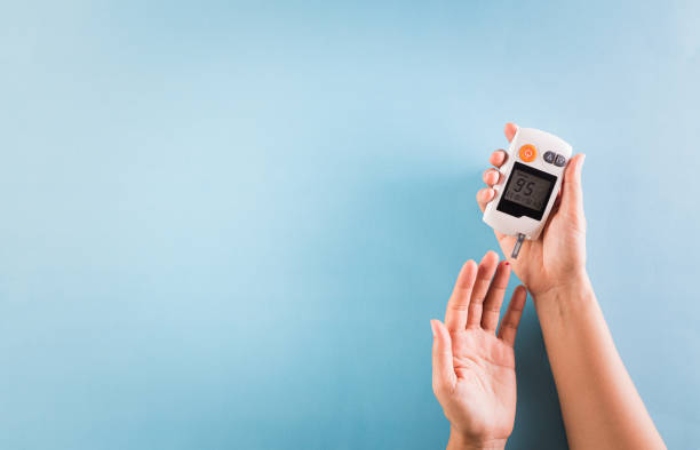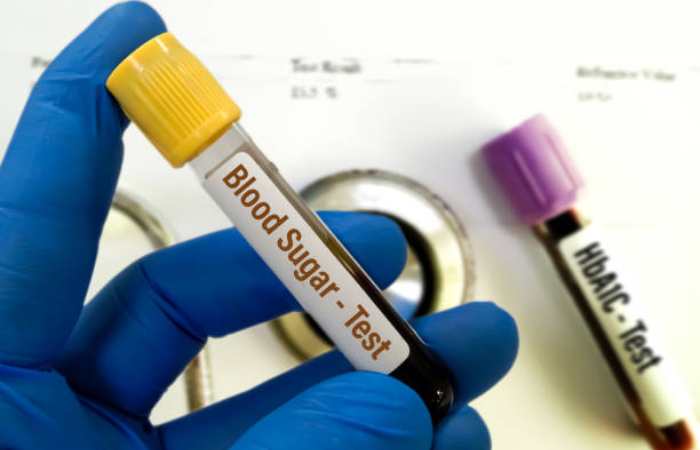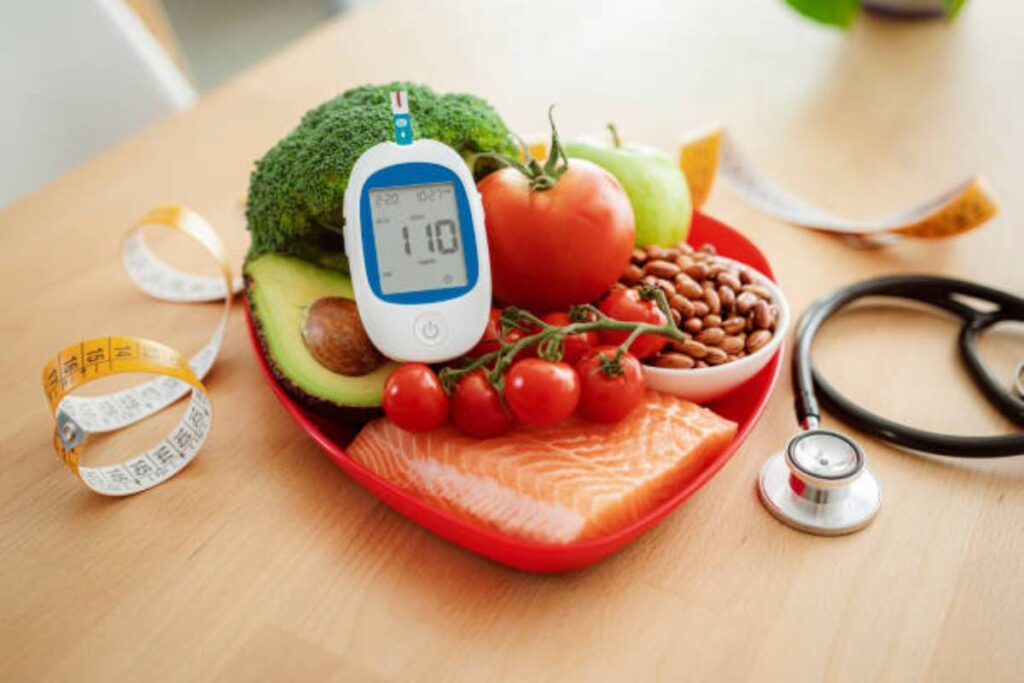Is falling asleep after eating a sign of diabetes? Many people experience drowsiness after meals, but when is it a symptom of something more serious? Learn about the relationship between postprandial drowsiness and diabetic weakness after eating and how insulin and drowsiness can interact in your body. Learn the symptoms, underlying causes, and when to see a doctor to ensure your health is prioritized.
Check out the topic:
- About 1 in 10 Americans has diabetes, which highlights the importance of recognizing symptoms like postprandial sleepiness that could indicate blood sugar imbalances.
- People with diabetes often experience hypoglycemia when they fall asleep after eating sugar. This is because your blood sugar height can spike and drop rapidly after consuming carbohydrates, leading to fatigue.
- About 38.4 million Americans have diabetes, and feeling extremely tired after meals, called diabetic postprandial fatigue, can be a sign that the condition is affecting sleep and energy levels throughout the day.
- Diabetes-related fatigue after eating is related to how the body’s insulin resistance or ineffectiveness affects energy levels, making sleepiness a possible warning sign of underlying health problems.
Have you ever felt so sleepy after eating that you could barely keep your eyes open? Is this normal, or could it be a sign of something more serious like diabetes? Many people experience uncontrollable sleepiness after eating, which raises concerns about their health. Could this sleepiness be linked to diabetes, mainly if it occurs regularly?
In India, diabetes is a growing health problem, with over 77 million adults currently diagnosed with the disease. This makes understanding the signs and symptoms even more critical. The condition involves a drop in energy after eating, which many believe could be related to insulin and sleepiness.
Is falling numb after eating a sign of diabetes? To get to the bottom of this, we need to look at how our bodies react to food and what this could mean in the context of diabetes. So, if you often reach for a pillow after lunch, read on to learn more about what your body is telling you.
Is Falling Insensible After Eating a Sign of Diabetes?
Have you ever wondered if feeling sleepy after eating is a sign of diabetes? It’s a common question, especially when you feel like napping right after eating. Feeling sleepy after eating isn’t unusual and can happen to anyone, but knowing when it might cause concern is essential. Shop Vitamins & Supplements
After you eat, your body’s blood sugar levels rise. This typical spike occurs when your digestive system breaks down food into glucose, the sugar your body uses for energy. However, the body’s response to this surge of glucose can vary, especially in people with diabetes.
In people with diabetes, their bodies don’t produce enough insulin or can’t use it effectively, causing blood sugar levels to remain higher than usual. This imbalance can lead to diabetic weakness after eating, making you feel exhausted.
A study found that people who felt excessively sleepy for more than two hours after eating had a higher risk of having undiagnosed diabetes.
Why Does Sugar Make Me Tired?

Many people wonder, “Why does sugar make me tired?” It’s confusing because sugar is an energy source that can make you sleepy.
Here’s why:
- Serotonin production: Eating sugar increases the manufacture of serotonin, a neurotransmitter that panels mood, hunger, and sleep. High levels of serotonin can make you feel sleepy.
- Tryptophan activation: Sugar helps the brain absorb the amino acid tryptophan. Tryptophan is converted to serotonin, which improves sleepiness.
- Digestive energy: Digesting foods high in sugar can use up a lot of energy, diverting blood to the digestive system and away from other organs and causing fatigue.
- Dehydration: High sugar intake can lead to dehydration, another cause of fatigue, as the body needs to draw water from tissues to dilute the sugar in the blood.
- Adrenaline-induced fatigue: The initial sugar rush causes an adrenaline rush, and as the effect wears off, you may feel exhausted.
These factors combined are why eating sugary foods can frequently lead to feelings of fatigue. Especially in conditions such as diabetes and tiredness after eating.
Does High Blood Sugar Make You Sleepy?

When it comes to diabetes, a common symptom is fatigue. You may wonder, “Does high blood sugar make you sleepy?” The answer is yes, and here’s an example to illustrate:
Imagine a person with diabetes who has just eaten a large meal high in carbohydrates. Your body has difficulty processing the sudden increase in blood sugar because it either doesn’t produce enough insulin or can’t use it effectively.
As a result, glucose sits in the bloodstream instead of being used for energy. This inefficiency can lead to diabetic exhaustion after eating, making the person sleepy.
If you constantly feel tired and lethargic, especially after meals, check your blood sugar levels to see if they are consistently high.
What is it Called When You Get Tired After Eating?
The term “postprandial sleepiness” is used to describe the feeling of extreme tiredness after eating and is commonly referred to as a “food coma.” It is a natural response to certain foods and the body’s digestive process.
The following factors contribute to this condition:
| Factor | Explanation |
| Type of Food | High-carb, fatty, and sugary foods can increase drowsiness. |
| Meal Size | Larger meals require more energy to digest, leading to fatigue. |
| Digestion Process | Digestion increases blood flow to the stomach, reducing energy elsewhere. |
| Blood Sugar Levels | Spikes in blood sugar after eating can contribute to tiredness. |
| Hormonal Responses | Meals can induce hormone release like insulin, which affects energy levels. |
| Poor Sleep Quality | Lack of sleep can exacerbate feelings of tiredness after eating. |
As for uncontrollable sleepiness after eating, this condition may be more pronounced in people with diabetes, as their blood sugar levels may not be well regulated, leading to significant fatigue. Diabetes and lack of sleep during the day are other related problems, as irregular blood sugar levels can disrupt standard daily energy patterns.
Does Insulin Make You Tired?
You’re not alone in wondering: Does insulin make you tired? Insulin is one of the most important hormones that control the amount of glucose or sugar in our bodies, which affects our energy levels.
Here are some key points to keep in mind:
- Blood sugar rule: Insulin helps regulate blood sugar, but too low or high can cause fatigue.
- Insulin sensitivity: People with higher insulin sensitivity may experience more severe energy dips due to the insulin response.
- Energy distribution: By telling your body to use glucose for fuel or temporarily store it, insulin can sometimes tire you until these processes are complete.
- High sugar response: The rapid insulin response can lead to hypoglycemia (falling asleep after eating sugar) when people consume excessive amounts of these foods.
- Digestive Energy Use: The energy needed for digestion after eating a high-carb meal, as well as the reason why people with diabetes get tired after eating, leads to fatigue.
Understanding how insulin affects the body can help manage these feelings of fatigue, especially in people with diabetes whose reliance on insulin is a key part of their treatment.
Also Read: Opinions about kopmatelatv
Final Thoughts
If you regularly feel the need to sleep after eating, it’s essential not to ignore this symptom, especially if other signs of diabetes accompany it. While it’s common to feel sleepy after a big meal, persistent fatigue after eating could indicate that your body is struggling to control its blood sugar levels.
“Is dwindling asleep after eating a sign of diabetes?” Yes, it can be, especially if you’re also experiencing symptoms like increased thirst, frequent urination, or unexplained weight changes.
“Why do I feel sleepy after eating sugar?” The answer may include a sudden spike in blood sugar, followed by a sudden drop that can disrupt your body’s energy levels. This requires the help of medical experts who can properly diagnose and guide you through these symptoms if they seem concerning to you.
Glossary:
- Hyperglycemia: This occurs when there is too much sugar in the blood. This happens when the body has too little insulin or cannot use it properly, as often happens in diabetes.
- Insulin resistance happens when the body’s cells do not reply well to insulin, which helps transport sugar from the blood into the cells. This often leads to increased blood sugar levels and may precede type 2 diabetes.
- Glycemic index: This measure ranks foods based on how much they raise blood glucose levels, like pure glucose. Foods with a high glycemic directory can cause rapid spikes in blood sugar.
- Postprandial sleepiness: Commonly called a “food coma,” a feeling of tiredness or fatigue after eating, often associated with large or carbohydrate-rich meals.
Frequently Asked Questions
Is falling asleep after drinking a sign of diabetes?
If it happens regularly and intensely, it could indicate that your body has trouble controlling blood sugar.
What is feeling tired after eating called?
This is called postprandial sleepiness, often called a “food coma.”
Why do people with diabetes feel tired after eating?
People with diabetes can feel tired after eating because of variations in blood sugar levels. Affecting energy distribution and insulin function.
Diabetes and falling asleep during the day: Is there a connection?
Yes, fluctuations in blood sugar levels can cause daytime fatigue, making people with diabetes more likely to feel sleepy.
Why do I feel sleepy after eating sugar?
Sugar consumption causes a rapid spike in blood sugar levels shadowed by a fast drop, which can cause significant drowsiness.
Can a sudden increase in drowsiness after eating indicate the onset of diabetes? Yes, a sudden and consistent growth in drowsiness after meals can indicate the onset of diabetes, as it may be related to how the body manages insulin and glucose levels.
How does blood sugar affect energy levels after eating?
Blood sugar levels directly affect energy levels; hyperglycemia accompanied by high blood sugar levels can cause fatigue, while a rapid drop to hypoglycemia after a spike can also cause fatigue.


